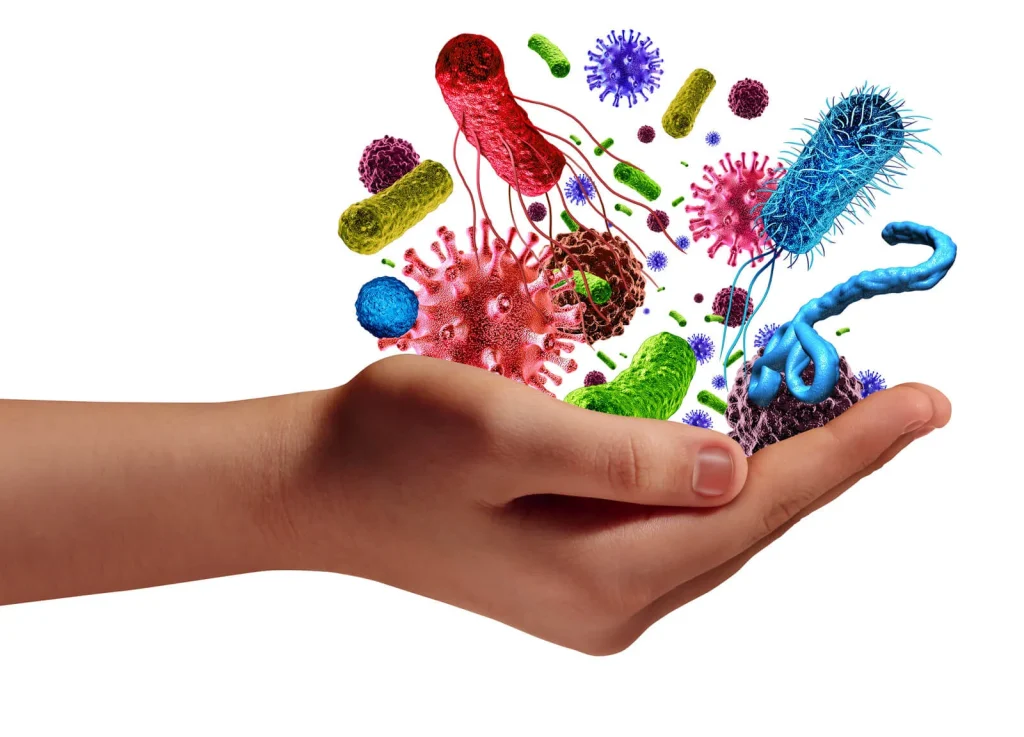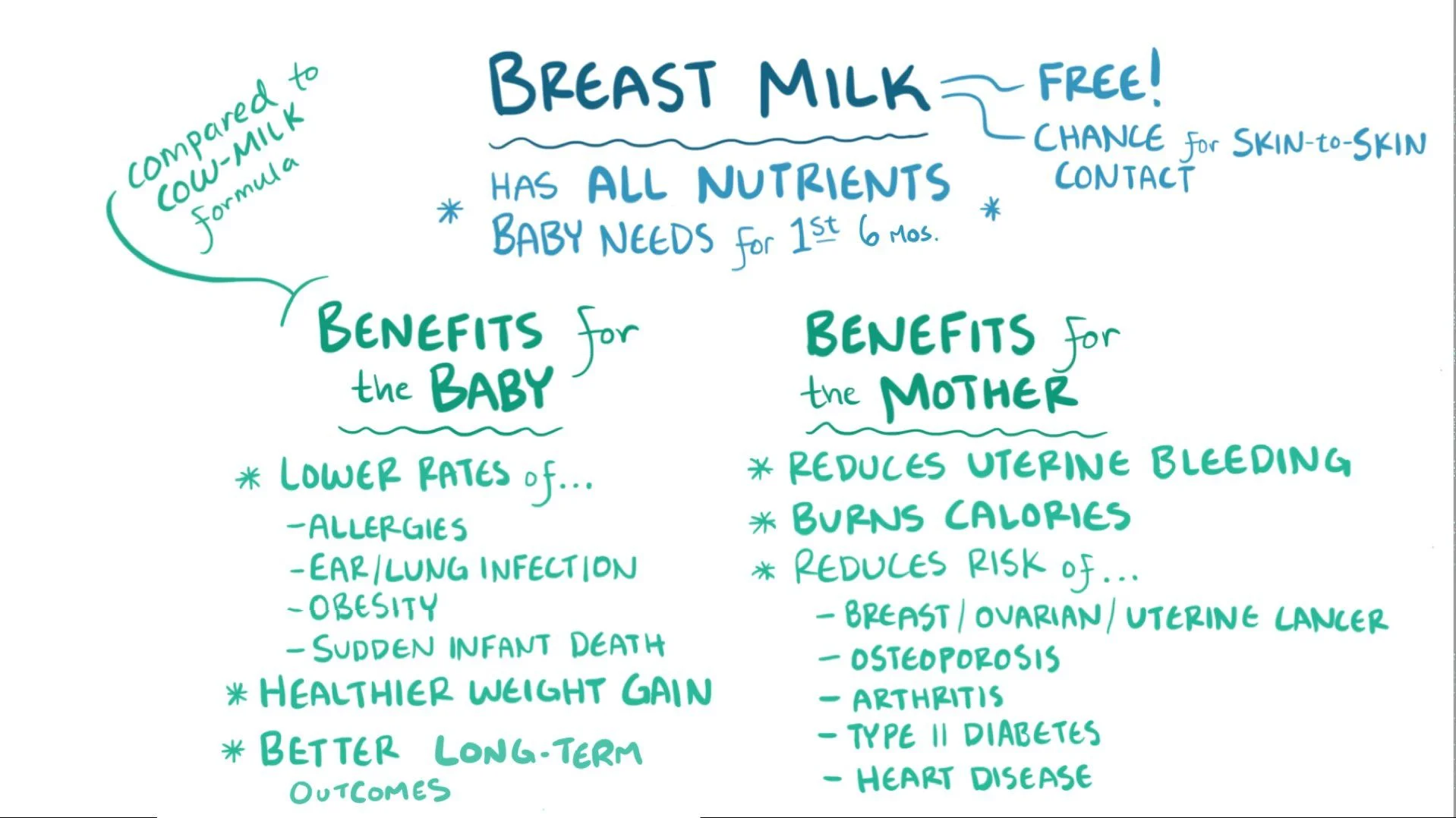Breast milk is often described as the best nutrition source for the baby providing different health benefits which cannot be matched up by formula. This article discusses the main advantages of breastfeeding and why it matters to newborns’ well-being and growth.
Furthermore, we will look into its nourishing components, immune-boosting qualities and long-term advantages for both mother and infant.
Benefits of Breast Milk
Nutritional Edge
It should be noted that the product has all the necessary nutrients needed for the growth and formation of a child. It contains fats, proteins and carbohydrates in correct amounts which are easily broken down by the baby’s digestive system to maximize on each feeding.
The complete nutrition ensures normal weight gain, brain development, and overall body growth.
Strengthened Immune System
This becomes one of the most important reasons why you should consider breastfeeding your newborns. It has immunoglobulin A (IgA) among its contents which are basically antibodies used in fighting off various diseases and infections.
They are transmitted from mother to child offering immediate protection while at the same time building his immune system over time especially when he is still young and vulnerable thereby requiring much care in order not to infect him by any means possible.

Gut Health
Breast milk can be digested more quickly than formula so it reduces such gastrointestinal problems as constipation, diarrhea or colic. Bifidobacteria like beneficial bacteria in breast milk help to establish a healthy gut microbiome which is necessary for the absorption of nutrients and general digestive health.
This comfort while taking food enables babies to live well without any agony attendant to bottle feeding.
Cognitive Development
Research indicates that infants who are breastfed tend to have higher IQ scores and better cognitive development than their formula-fed counterparts do. Breastmilk contains fatty acids including DHA (docosahexaenoic acid) which is essential for brain development.
These elements promote neural pathways’ development and performance resulting in advanced cognitive capacities as children grow up with improved learning outcomes.
Reduced Risk of Chronic Diseases
Breastfeeding has been linked to a lower risk of later-life chronic disorders. Breastfed infants have a lower chance of developing obesity, type 2 diabetes and some cancers. These protective effects are believed to be as a result of various component(chemical constitution) in breast milk after breastfeeding which set up healthy eating habits while the mother is still nursing.
Therefore, healthy future development can be hindered by feeding children wrongly and also expose him/her to illness.
Emotional Bonding
Breastfeeding creates strong emotional bonds between mothers and their young ones. The skin-to-skin touch during breastfeeding does enhance a sense of security and an attached feeling. This influence on bonding matters for the baby’s emotional state but may also positively affect the mom’s mental well-being by decreasing the likelihood of postpartum depression occurring.
Whenever this connection is achieved through breastfeeding, it always contributes towards the child’s perception of welfare and emotional stability

Inexpensive Nutrition
Free breast milk is economically beneficial for feeding children, making it particularly cost-effective. The financial implications of bottle and accessories purchases and the high cost of formula as compared to breastfeeding are also important to note. This may be a significant economic gain for families, who can thus direct their resources towards other basic needs.
Moreover, lower health care costs attributed to lessened cases of illness and hospitalization further demonstrate the economic benefits of breastfeeding.
Environmental Preservation
When a mother opts for breastfeeding, this reduces her carbon footprint hence keeping the planet green one baby at a time.
The fact that there is no refuse or power used in manufacturing formulas makes breastfeeding more eco-friendly in line with global sustainability efforts.
Hormones for Mothers
Under the influence of oxytocin, breastfeeding mothers will have their uterus come back to its initial size before pregnancy and reduce postpartum bleeding. Besides this, it also helps them to become calm and develop bonding with their children thus enabling them to overcome stress that comes along caring for newborns.
This role of hormones ensures quick recovery from childbirth by women while bringing out positive emotions and greater sense of well-being as a result (Nelson 67).

Long-Term Maternal Health Benefits
Women who breastfeed stand reduced risks to cancer (including ovarian and breast forms), type 2 diabetes or heart disease. These health conditions are protected by hormonal alterations associated with lactation thereby providing prolonged benefits in terms of physical wellbeing which may be accrued through the choice to breastfeed a baby (Ozawa et al., 2010).
Instead, they would rather support their own long-term wellbeing as well as that of their baby.
Conclusion
Breast milk provides many benefits for both the infant and his/her mother ranging from nutrition and immune function to bonding and health in adulthood. Knowing these advantages will help parents make decisions that will help their babies grow properly. Breast milk as an excellent choice for an infant’s food because of its cerebral enhancement by essential fatty acids or its cost savings plus environmental impact compared to other kinds of infant nutrition.
For mothers who decide to breast-feed their children, they give them the best possible start they could ever have in life which ensures they have a healthy future ahead of them.
FAQs on Breast Milk
What is breast milk made up of?
There are three stages involved in producing breast milk; colostrums which is the first one, transitional milk and mature milk. It is rich in antibodies and nutrients and appear thick yellowish during the first few days after birth. Transitional milk then follows which lasts for approximately two weeks gradually increasing in volume as well as changing its composition.
Can a mother produce enough milk for twins or multiples?
Yes, she can. Breast milk supply is demand-driven: meaning the more frequently infants nurse; the higher the quantity of milk produced by their moms.
How long should a mother breastfeed?
According to the WHO, exclusive breastfeeding should continue up to six months of age, whereas it should be continued with complementary foods (WHO).

Russell F. Jones, holding a Master in psychology from the University of Florida. He writes for Smart Parent Solutions, offering practical advice on parenting and child development. His engaging content helps parents navigate family life with confidence and ease. Russell enjoys sharing his knowledge and spending quality time with his family.
